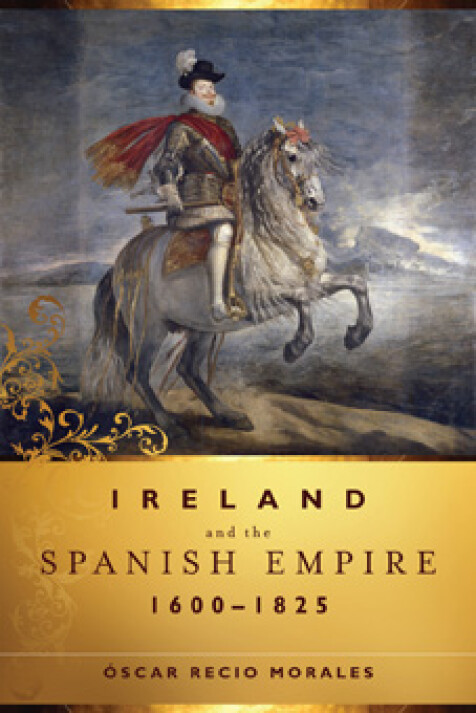Ireland and the Spanish empire, 1600–1825
Óscar Recio Morales
This book has been selected by Choice, a journal which provides book reviews for academic libraries, to be part of their annual Outstanding Academic Title list. The titles on this list, chosen from over 7,000 titles reviewed in Choice in 2010, were selected for their excellence in scholarship and presentation, the significance of their contribution to the field and their value as important treatment of their subject.
In the wake of the Irish-Spanish defeat at Kinsale (1602), through army careers and the concession of nobility titles, Spanish kings placed the Irish exiled lords and gentry in an advantageous position on a par with the nobility in the early modern Spanish world. Imposition of orthodox Catholicism within the Spanish realms implied the social inclusion of certain ‘nations’ such as the Irish and the exclusion/repression of other groups who were not assimilatable into that society – Jews, Moriscos and Gypsies. Not all Irish migrants were soldiers, nor where they all men. Not all obtained honours and integration and, even for the Irish nobility, assimilation could be difficult. This book covers this complexity of Irish migration to the Spanish empire, from 17th-century Hapsburg Spain to 18th-century Bourbon Spain, from Europe to the new World, from Madrid, Brussels or Cadiz to Havana, Lima and Chile. Even though Ireland did not form part of this empire, the contribution of Irishmen and Irishwomen to this multinational empire was remarkable. The Irish ‘nation’ played a key role in the army, commerce, medicine, literary life and 18th-century Spanish Enlightenment.
Óscar Recio Morales holds a PhD from the University of Alcalá, and is a researcher at the University Complutense, Madrid.

